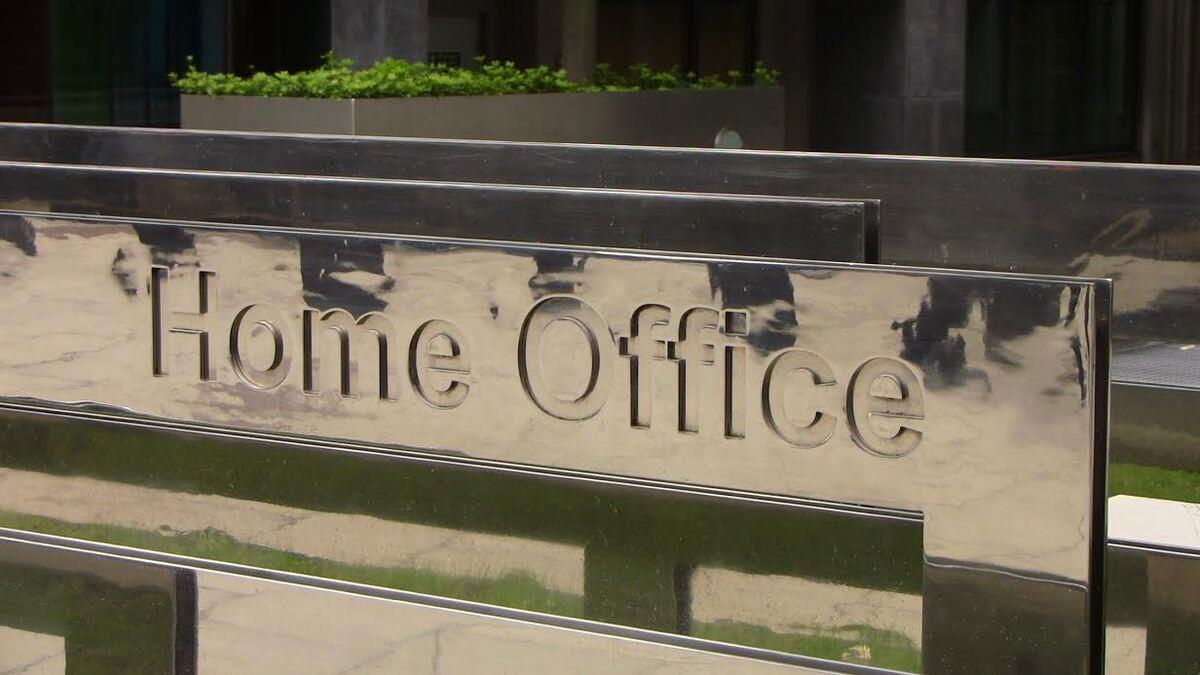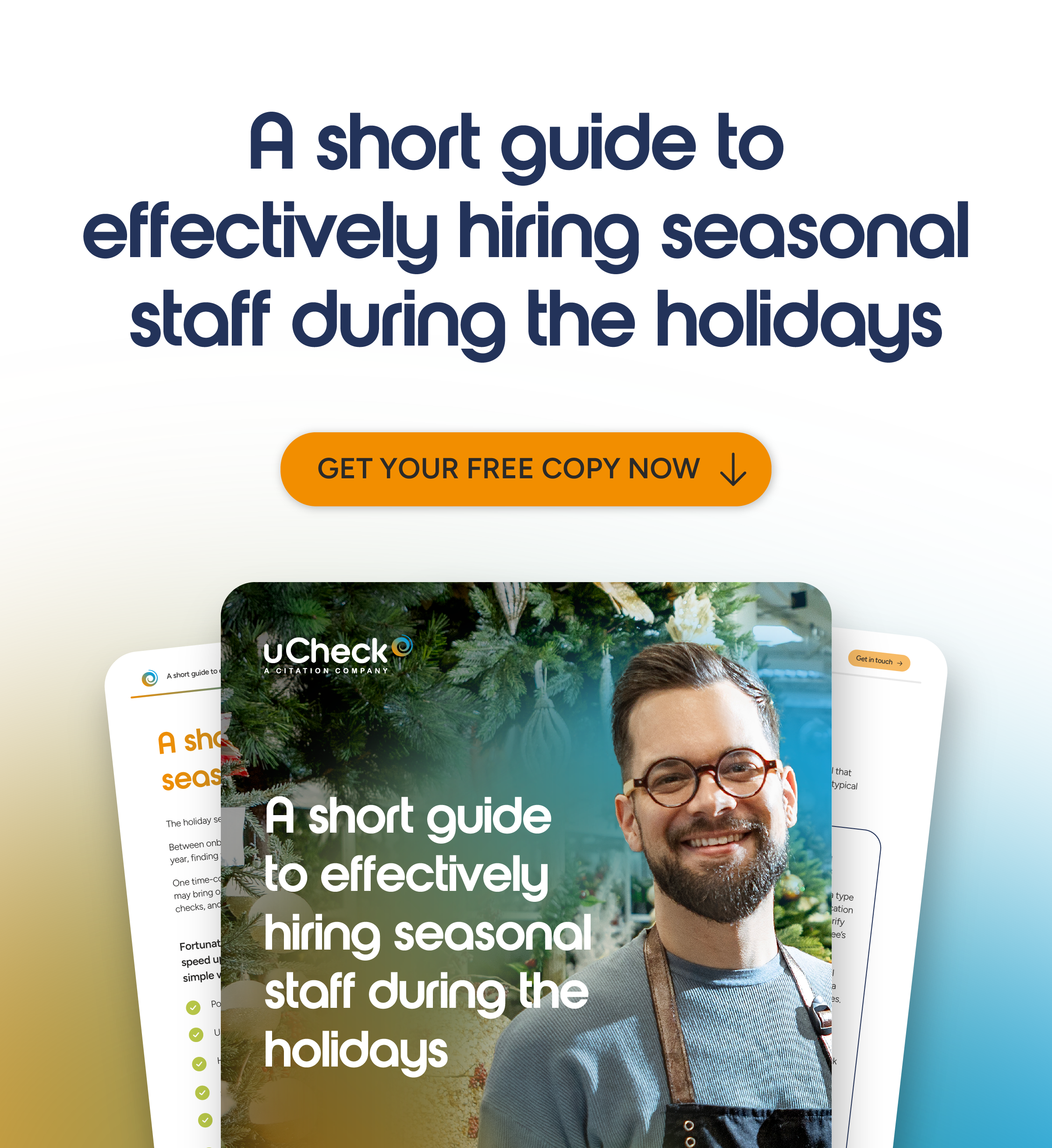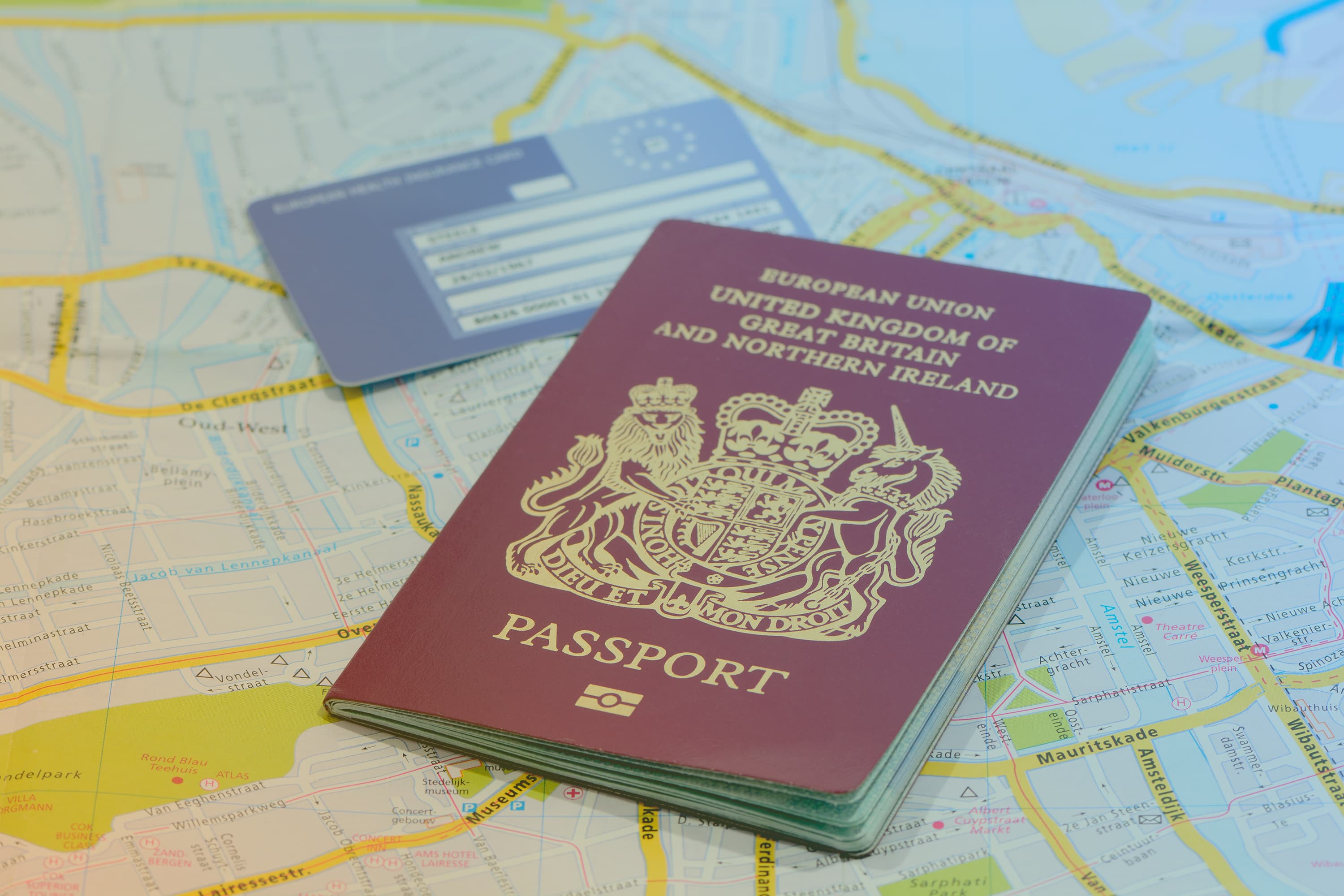You may hear many people refer to CRB and DBS checks when discussing criminal record checks. But what do these terms mean? And what’s the difference between a CRB and a DBS Check?
In short, CRB checks no longer exist, and DBS checks have taken their place. But there’s a bit more to it than that.
This simple guide to the different terms provides an overview of the different types of checks and what’s best for you.
What is a CRB check?
A CRB check refers to a Criminal Records Bureau check, which was introduced by the Home Office in England and Wales between 2002 and 2012. These checks were in operation until the process was streamlined with the introduction of the Disclosure and Barring Service (DBS).
CRB checks were a revolutionary service that provided detailed reports of an applicant’s criminal record history, using the Police National Computer to check for criminal records.
Employers often used them to help safeguard vulnerable groups like children and vulnerable adults.
When did DBS checks replace CRB checks?
If you’ve ever wondered when CRB checks became DBS checks (and why), you’re not alone. This change marked an important step in streamlining how criminal record and safeguarding information is handled in England and Wales. Here’s a quick look at when the transition happened and what it meant.
DBS checks officially replaced CRB checks in December 2012. This followed the merger of:
- The Criminal Records Bureau (CRB) – which is responsible for criminal record checks
- The Independent Safeguarding Authority (ISA) – which is responsible for maintaining the barred lists
The result was the Disclosure and Barring Service (DBS) – a single organisation now responsible for all criminal record and safeguarding checks in England and Wales.
This change aimed to:
- Make the process easier to manage for employers and organisations
- Avoid duplication of efforts between two separate bodies.
- Offer a more streamlined and consistent service.
Even though the name changed, the overall purpose to help employers make safer recruitment decisions did not.
So, what is a DBS Check?
A DBS check is an official record check by the Disclosure and Barring Service. It provides information about a person’s criminal history to help employers decide if they’re suitable for certain roles.
There are three main types of DBS checks:
- Basic – For any role. Shows unspent convictions and cautions.
- Standard – For roles like accountants, legal professionals, and certain public services. Includes:
- Spent and unspent convictions
- Cautions, reprimands, and final warnings
- Enhanced – For roles involving children or vulnerable adults. Includes:
- Everything in a Standard check
- Relevant information held by local police
- Checks against the Children’s and/or Adults’ Barred Lists (if eligible)
Key points to remember when it comes to DBS checks:
- Only employers can request Standard or Enhanced checks.
- Individuals can apply for Basic checks themselves.
- The DBS also issues the final certificate to confirm the results.
The key differences between CRB and DBS checks
What’s the difference between a CRB and a DBS check? Well, not much, really. Put simply, there’s no great difference between these two checks. They just refer to different criminal record checks that have been offered over the years.
The term ‘CRB check’ is still used commonly today for criminal record checks, and many people may still have a CRB certificate. However, these checks can no longer be requested in their previous format.
Why did the CRB and ISA merge?
The decision to merge the Criminal Records Bureau (CRB) and the Independent Safeguarding Authority (ISA) into the Disclosure and Barring Service (DBS) was driven by a need for a more coherent and efficient safeguarding system.
Before the merge:
- The CRB handled criminal record checks.
- The ISA managed the Children’s and Adults’ Barred Lists.
After the merge:
- The DBS took over both functions.
- Employers can now request one check that includes criminal history and barred list information (if applicable).
What did the merge change?
When DBS checks replaced CRB checks, the overall process of background checks didn’t change overnight – but there were still a few important developments worth noting. As mentioned, the main aim stayed the same: to help employers make safer recruitment decisions by sharing relevant information about a person’s criminal record.
But, that said, the launch of the Disclosure and Barring Service did introduce some changes. These included updates to the terminology, how the checks were structured, and which organisations handled the process. Here’s a quick overview of the key changes:
- A simplified process:
Before 2012, employers often had to navigate two separate systems, one for criminal record checks (CRB) and another for barred list checks (ISA). Merging them meant organisations only needed to deal with one body: the DBS. - Reduction of duplication and confusion:
There were overlaps in the CRB and ISA functions, which sometimes led to confusion over who handled what. A single organisation meant clearer responsibilities and fewer administrative hurdles. - Improved safeguarding decisions:
By uniting criminal record data and barred list information, the DBS could provide a more comprehensive picture to employers making recruitment decisions, especially for roles involving children or vulnerable adults. - Improved turnaround times:
The merger enabled the government to invest in digital infrastructure and streamline background checks, making it easier for organisations to recruit quickly while still meeting safeguarding requirements. Basic DBS checks are completed within 2 days on average, whereas CRB checks could take several weeks. - Improved service based on feedback from the public:
The vetting and barring system had received criticism for being too complex and burdensome. The Protection of Freedoms Act 2012, which introduced the DBS, also aimed to scale back and simplify the process.
The creation of the DBS wasn’t just a rebrand. It was a strategic move to build a better, more efficient safeguarding system to keep up with modern demands.
Are old CRB certificates still valid?
It’s not uncommon for employers or individuals to come across old CRB certificates and wonder if they’re still acceptable. If you or one of your employees still holds a CRB certificate, the good news is: yes, it’s still valid. However, there are important limitations to be aware of.
Here’s what you need to know:
- No expiry date:
Like DBS certificates, CRB certificates don’t have an official expiry date. They’re technically valid indefinitely. - Employers may want a new check:
Most organisations have internal policies that require criminal record checks to be refreshed:- Every 1 to 3 years, depending on the role.
- Especially for jobs involving children, vulnerable adults, or sensitive information.
- Changes in legislation could affect eligibility:
The rules regarding who can receive a certain level of DBS check have changed since CRB certificates were issued. For example:- Someone who previously received an Enhanced CRB check may no longer be eligible for the same level of check today.
- Employers may not be legally allowed to view the same level of detail under newer legislation unless the role meets current eligibility criteria.
- Outdated information:
A CRB certificate issued many years ago won’t reflect any convictions, cautions, or police information recorded since then. - Not accepted by all employers or regulators:
Some sectors (like healthcare, education, or finance) may not accept older CRB certificates at all, especially if they have stricter compliance requirements.
For clarity on specific situations, you can contact the Disclosure and Barring Service directly or get in touch with our team.
What changed for barred list checks?
As highlighted above, the formation of the DBS in 2012 meant that it took over control of the barred lists from the ISA.
This means that Enhanced DBS checks (the highest level) can now include barred list checks as part of the same application, if the applicant is eligible for these checks.
Suppose an applicant is engaging in regulated activity with children and/or vulnerable adults. In that case, they’ll be eligible for a check against the children’s and/or vulnerable adults’ barred list, as applicable.
This check involves a cross-reference of their information against the list/s of people barred from working with these vulnerable groups.
What check do I need today?
CRB checks are now a thing of the past. If you’re applying for a criminal record check today, it’s a DBS check you’ll need – and the level of check depends on the role in question.
Here’s a quick recap:
- Basic DBS check – Available to anyone. Shows unspent convictions and cautions. Often used for roles in retail, hospitality, and general employment.
- Standard DBS check – Available to employers for certain eligible roles. Includes both spent and unspent convictions, cautions, reprimands, and warnings.
- Enhanced DBS check – For roles involving regulated activity (such as teaching or healthcare). Includes everything in a standard check, plus relevant police information and barred list checks (if applicable).
Not sure which one applies to you or your team? You can:
- Use the DBS eligibility tool
- Speak to your employer or HR department
- Ask your industry regulator
- Or simply get in touch with us!
Understanding which check you need is the first step; getting it quickly and efficiently is the next.
Get DBS checks with uCheck!
So, if you’re wondering whether you need CRB and DBS checks, these are the key points to remember:
- CRB checks are no longer offered. However, people still use the term to refer to criminal record checks.
- If you’re legally eligible for a criminal record check based on your job role, it’s a DBS check that you’ll need to request – but only employers can request higher-level DBS checks.
- Legislation has changed in the transition from CRB to DBS – check with the DBS to confirm which level of check is most suitable for your job role.
Be sure to get in touch with us if you have any further questions. You can apply for a number of DBS checks through our simple online platform – most checks are completed within 48 hours, and we’re proud to report that our turnaround times are faster than the national averages! For a fast, efficient service, get started with uCheck today.







